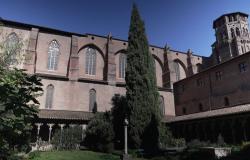At the end of the 1970s, the great Palestinian-American intellectual Edward Said published a book that has had a resounding impact to this day: Orientalism. In this work, which is originally a work of comparative literature, Edward Saïd demonstrates that the Orient, essentially Arab and Muslim, is not only a geographical locality, a history and a civilization, but also an object of fantasies and mental and cultural representations on the part of its alter ego, the West.
Firstly, through painting and literature, the West created its own Orient, by projecting into himself, as in an inverted mirror, everything he thought he was not: magical, fanatical, irrational and sensual. It is this world that we find for example in the paintings of Ingres or Delacroix, or in the texts of Flaubert, Nerval or Kipling.
These works are not simple and harmless paintings, novels or collections of poetry, they will subsequently serve to nourish a dominant imagination and a scientific and political discourse to justify the colonization and exploitation of land and people. With clarity and erudition, Edward Saïd explains in Orientalism the capacity of ideas and imagination to create an “other”, both fascinating and repulsive, over which we can legitimately exercise our power and domination.
But on the other side of the mirror, there is also a West or more precisely “Wests” created and fantasized in the East. There is obviously a West among conservatives and Islamists who, in the light of religious morality, see only debauchery, decay and “bestiality”; there is also the West seen by liberals and modernists, captivated by its democratic institutions and its social and cultural model, but also a West dear to technocrats, who aspire to only duplicate its economic rationality and its technological advances. Everyone represents the West according to their ideological sensitivity, their positioning and their relationship to others. But in all these trends, there is unanimity on a detestable West, whose image is at the heart of all current rejections.
“The West we hate is the one that is ecstatic over an Iranian woman who takes off her clothes and rightly revolts against the theocratic regime in Iran, but looks away from the spectacle of thousands of women murdered or deported to Palestine ”
Abdellah Tourabi
The West that we all hate is that of double standards, double speech and humanity of varying “facies”. The one who utters cries of horror and indignation when Ukraine is invaded by the Russian army, but multiplies rhetorical precautions when Israel massacres the inhabitants of Gaza and cowardly sends victims and genocide perpetrators back to back. The West we hate is the one that is ecstatic over an Iranian woman who takes off her clothes and rightly revolts against the theocratic regime in Iran, but looks away from the spectacle of thousands of women murdered or deported to Palestine and in Lebanon. They probably should have died in mini skirts to be worth a look!
The West that we abhor is the one that fights to make democracy and freedoms triumph within it, but supports, arms and courts states that murder and send their opponents or those who dare to have a divergent opinion into exile. The detestable West is the one that awards prizes, protects and gratifies impostors and opportunists who reassure it in its supposed moral superiority and whisper culturalist nonsense, but ostracizes or discredits those who have an iconoclastic or dissonant path.
The West that we all loathe is that of paternalism and condescension, of discourse on humanist values which remains silent when economic and political interests begin to speak, which betrays its own philosophical and moral foundations and “cuckolds” those who believe in it. This West is not fantasized, but indeed real and dangerous, for itself and for “the other”.





